Zhang Ke Awarded Alvar Aalto Medal
12 September 2017

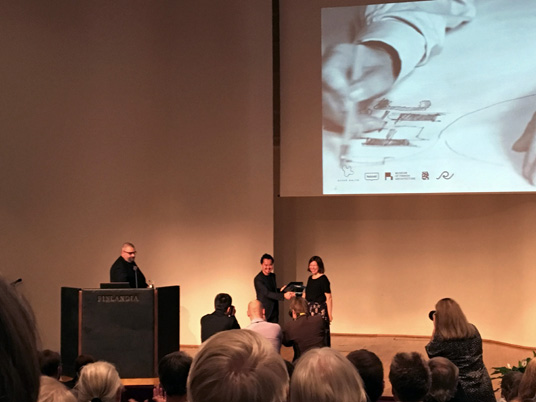
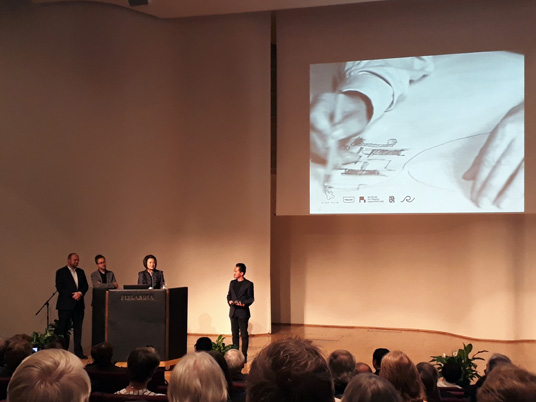
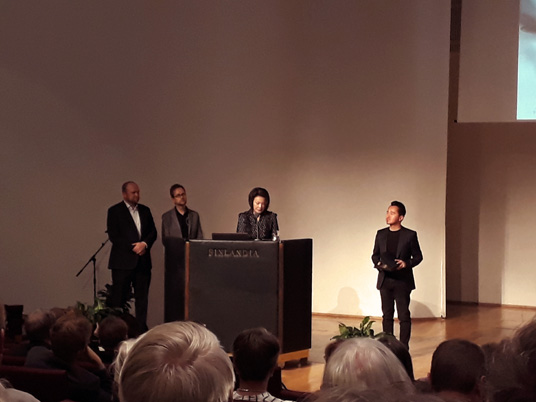



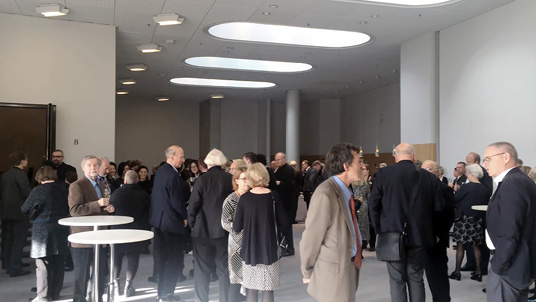
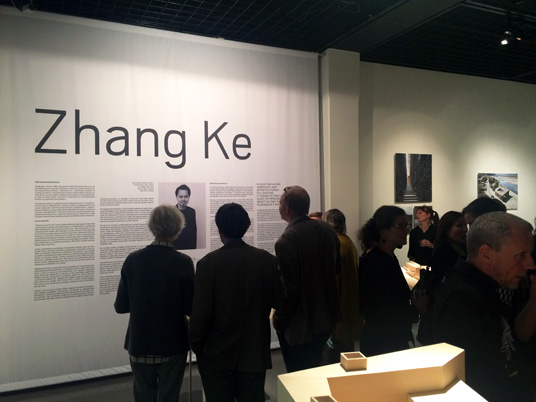
Zhang Ke was awarded the Alvar Aalto Medal on September 12, 2017. The ceremony took place in the Finlandia Hall, designed by Alvar Aalto. Joining the list that includes Alvar Aalto, James Stirling, Jørn Utzon, Tadao Ando, Alvaro Siza and Glenn Murcutt, Zhang Ke is the medal's 13th recipient.
Established in 1967, the Alvar Aalto Medal, one of the most internationally significant architecture prizes, is to honour an architect who is exceptionally accomplished in the field of creative architecture and has carried on Aalto’s legacy of sustainable, humane design. The prize bearing Aalto’s name is one of the most important honours bestowed on architects worldwide.
2017 ALVAR AALTO MEDAL JURY STATEMENT
In 2017, we face unprecedented instability in the world at large, and witness human rights in jeopardy in both developing and developed nations. The jury therefore felt strongly that we reaffirm commitment to humanism in architecture in honor of Alvar Aalto’s legacy. Alvar Aalto’s architecture serves to enhance and strengthen the values of community and to enlighten generous and careful considerations for the coexistence of humanity. Therefore, for the occasion of the 50th anniversary of the Medal, the jury felt that a pervasive influence of Alvar Aalto in a global context should be recognized.
His architecture engages with diverse people for whom intimate architectural experiences are accessible. The relevant and timeless idea of architecture as an important element in society that promotes social cohesion is a belief worth bringing forth especially today. Another idea we wanted to promote is to highlight contemporary architects who create harmonious relationships between landscape and architecture.
We felt strongly that this medal should recognize an emerging talent in architecture. In fifty years it has served as a harbinger of architects who matured over the years to receive other prestigious awards. We believe at this time that it is important to recognize this criterion which grew organically through this awards own history. As a jury, we came up with four important criteria to judge this year’s winner of the Alvar Aalto Medal of 2017. These are: Creativity, Sustainability and Ecology, Context of the Award and Excellence in Design.
We are very happy to announce the winner, Zhang Ke of China. He is very creative in working with local material, technique and crafts and integrates landscape elements into his architecture. He incorporates historic elements in his contemporary design thus preserving tradition without nostalgia. His vision is motivated by enjoyment of the user, therefore making it experiential at human scale. His language of architecture is contemporary, but is purposely a quiet presence and does not overwhelm context.
Ecologically speaking he often uses discarded materials to encourage reuse of resources and incorporates the old into the new instead of demolishing existing structures. He is masterful at making something new through reuse of otherwise mundane materials to rediscover a new beauty in it. The buildings are sensitively sited with considerations taken for the elements and forces of nature, thus protecting the environment as well as the ethos of its environs.
The architect stands to resist against the context of China’s rapid urbanization and to promote individuality in an effort to manifest an alternative point of view, going against the commercial mainstream of the country’s standard practices. In addition, he focuses on neglected rural areas to enhance its value and to encourage economic growth as well as to stabilize marginalized communities through architectural design and propositions. He also produces micro-architecture at small scale as a series of interventions that could be cathartic to productive change in society, creating safe and stable spaces that can be used by the community.
He demonstrates an extremely high understanding of details and material crafts in his architecture in sometimes very challenging circumstances, such as in remote communities with limited access to technology. He is adept at working with traditional builders to encourage them to use their skills to achieve a contemporary architecture based on their knowledge.
From an aesthetic point of view, his work shows pure beauty that stands by itself since his use of materials, detailing and siting are all in balance with one another. In our time where ambitious and effortful forms fill our eyes, it is rare to find such quiet yet persuasive beauty as that found in Zhang Ke’s work.
His architecture serves a big idea and a big picture that is universal even though each project is very specific to its program and locale. It is because his designs are coherent at every level from materiality, to approach to the program and to understanding of its social aspects. We feel that harmony is present at every level of his work. Therefore 2017 jury felt there is a strong connection of his work with legacy of Alvar Aalto in a contemporary and global context in awarding Zhang Ke with Alvar Aalto medal in its fiftieth anniversary.
2017年9月12日,张轲被授予阿尔瓦•阿尔托奖。授奖典礼在赫尔辛基的芬兰地亚大厦举行。继阿尔瓦•阿尔托、詹姆斯•斯特林、约恩•乌松、安藤忠雄及阿尔瓦罗•西扎之后,张轲成为该奖项第13位获得者。
阿尔瓦•阿尔托奖设立于1967年,以芬兰建筑大师阿尔瓦•阿尔托名字命名,是国际重要建筑奖项之一。该奖用以表彰在建筑领域具有杰出成就,并秉承可持续及人性化设计理念的建筑师。
评审团评语(节选):
……逆中国商业化建筑潮流而上,张轲在中国高速城市化现实中,以自己的努力,呈现了另一种建筑观……虽然他的各个项目都因地制宜、各有特点,但所有的作品均传达了一个共有的理念和意象。因为从物质层面到对功能的解读,再到对社会性的理解,他的设计都是连贯的。我们在他作品的每个层面均看到了和谐。……